 A reader sent an email today with these questions:
A reader sent an email today with these questions:
- If Jesus died in the place of others, why does everyone else also die?
- If the penalty for sin is hell forever, and if Jesus paid the penalty for all the sins of the world, why is Jesus not the only one in hell forever?
- Did God punish Jesus by making him die and go to hell, or did God reward Jesus by raising him up from death and lifting him up to heaven?
- If Jesus died on a Friday afternoon and rose from the dead by the next Sunday morning, was the penalty for all the sins of the world less than two days dead?
- If God punished Jesus for all the sins of others by making him die on a cross, why are Judas Iscariot, Pontius Pilate, and Caiaphas not all heroes and saints for fulfilling the will of God?
- If people should rejoice at the suffering and death of Jesus, as if his pain were their gain, should they mourn his resurrection and ascension, as if his gain is their pain?
- If we live because Jesus died, do we die because Jesus rose to live again?
- If people go to heaven because Jesus went to hell, do people go to hell because Jesus went to heaven?
- Did the crucifixion of Jesus cancel the sins of others, or was it really the worst sin of all?
- Would God be just if He punished the innocent in place of the guilty?
- If Jesus paid the penalty for all the sins of others, and salvation in unconditional, is not everyone saved, no matter what he believes, says, or does?
- If the purpose of Jesus was to die, why did his story not end with his death?
- If good deeds make no difference, because no one can earn salvation, why did Jesus say so much about what persons should and should not do?
- How could the penalty for sins be paid hundreds of years before those sins were done?
- If Jesus, like a scapegoat, took away our sins when he died, did he bring back our sins when he came back from the dead?
- How could Jesus be a substitute to go in our places and also be a leader and example whom we should follow?
- If we do not follow Jesus, but he goes one way so that we can go another way, how do we expect to end up where he is?
- If Jesus were God, and God demanded that Jesus die to pay the penalty for the sins of everyone else, did God commit suicide?
As I read through these excellent questions about the death of Jesus, I realized that I couldn’t answer ANY of them because I didn’t accept the presuppositions that were within each question.
 For example, with question #1, I do not believe Jesus died in the place of others. I do not believe in “substitutionary” atonement.
For example, with question #1, I do not believe Jesus died in the place of others. I do not believe in “substitutionary” atonement.
With question 2, I do not believe that the penalty for sin is hell forever.
With question 3, I do not believe that God punished Jesus by making him die and go to hell…
And so on throughout the list of questions….
This is the problem with the vast majority of theology today. We are asking wrong questions because we are beginning with wrong ideas about God, Jesus, sin, and hell.
All of the questions above disappear when we learn just a few things from Scripture. Like what?
- God does not require punishment for sin, or blood payment to forgive.
- God is infinitely gracious, forgiving, and loving.
- Jesus didn’t die to appease God or buy forgiveness from God.
- Hell isn’t what you think…
Start with those ideas, and the way you read and understand the Bible will forever be transformed. If you want help, here are three books to get you started:
- (#AmazonAdLink) The Atonement of God
- (#AmazonAdLink) Nothing But the Blood of Jesus
- (#AmazonAdLink) What is Hell?
Enjoy!




 The first part of the battle plan is to put on the whole armor of God. Paul states this instruction twice in Ephesians 6:11, 13 when he writes, “Put on the whole armor of God” and “take up the whole armor of God.”
The first part of the battle plan is to put on the whole armor of God. Paul states this instruction twice in Ephesians 6:11, 13 when he writes, “Put on the whole armor of God” and “take up the whole armor of God.”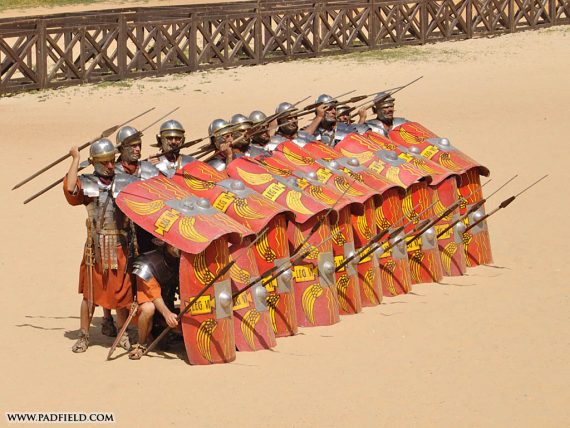

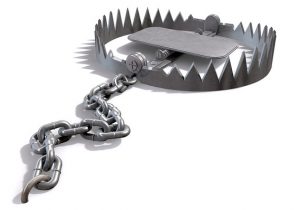 Along with three main types of temptations, there are also three main targets for these temptations. There are three areas that Satan is constantly trying to undermine and destroy. These three targets are the church, the family, and your own personal life.
Along with three main types of temptations, there are also three main targets for these temptations. There are three areas that Satan is constantly trying to undermine and destroy. These three targets are the church, the family, and your own personal life. When people recognize that Satan is real, Satan tries to get them to think that he is equal with God.
When people recognize that Satan is real, Satan tries to get them to think that he is equal with God.
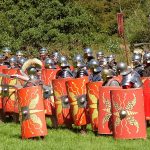
 But the Christian who truly steps out to follow Jesus into the dark and hellish places of earth will experience great difficulties, trials, and roadblocks in life. Such Christians will be called to love those they would rather hate, to forgive those who deserve nothing but death, to be patient with those who are rude and condescending, and to serve those who are the least enjoyable to be around.
But the Christian who truly steps out to follow Jesus into the dark and hellish places of earth will experience great difficulties, trials, and roadblocks in life. Such Christians will be called to love those they would rather hate, to forgive those who deserve nothing but death, to be patient with those who are rude and condescending, and to serve those who are the least enjoyable to be around. Therefore, since Christians who seek to follow Jesus into this world will face the resistance and struggles of spiritual warfare, it is imperative for Christians to know what is involved in spiritual warfare and how we can prepare ourselves to stand in the midst of this struggle.
Therefore, since Christians who seek to follow Jesus into this world will face the resistance and struggles of spiritual warfare, it is imperative for Christians to know what is involved in spiritual warfare and how we can prepare ourselves to stand in the midst of this struggle. The movie “Hacksaw Ridge” is a true story about Private Desmond Doss. He was drafted into the army for World War II, but since he was a pacifist, he refused to carry a gun or shoot others. However, he wanted to serve his country and do his part. He ended up earning the Congressional Medal of Honor for saving 75 fellow soldiers in the Battle of Okinawa, all without firing a single shot.
The movie “Hacksaw Ridge” is a true story about Private Desmond Doss. He was drafted into the army for World War II, but since he was a pacifist, he refused to carry a gun or shoot others. However, he wanted to serve his country and do his part. He ended up earning the Congressional Medal of Honor for saving 75 fellow soldiers in the Battle of Okinawa, all without firing a single shot. The reason is that although we are plugged into the power of God, there are things in our life that restrict its flow. Picture your life as a spiritual fuse box.
The reason is that although we are plugged into the power of God, there are things in our life that restrict its flow. Picture your life as a spiritual fuse box. After taking their oath of service, they were branded or marked with the letters SPQR, which was a Latin acronym showing that the soldier belonged to the “Senate and People of Rome.”
After taking their oath of service, they were branded or marked with the letters SPQR, which was a Latin acronym showing that the soldier belonged to the “Senate and People of Rome.”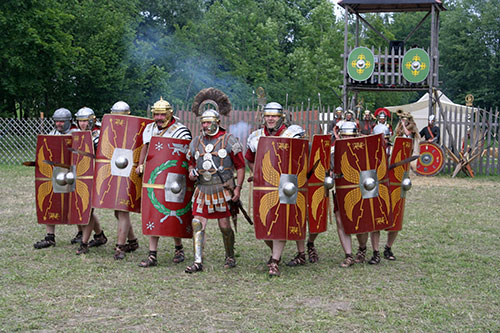
 This is not physical strength Paul has in mind, but spiritual. He wants us to exercise and work out spiritually. But just as with physical body building, spiritual strength training does not happen naturally. You do not become physically strong by sitting in a couch watching TV, and you do not become spiritually strong by sitting in a pew watching a Bible teacher. You will only become strong by getting up and engaging in strenuous spiritual activity.
This is not physical strength Paul has in mind, but spiritual. He wants us to exercise and work out spiritually. But just as with physical body building, spiritual strength training does not happen naturally. You do not become physically strong by sitting in a couch watching TV, and you do not become spiritually strong by sitting in a pew watching a Bible teacher. You will only become strong by getting up and engaging in strenuous spiritual activity.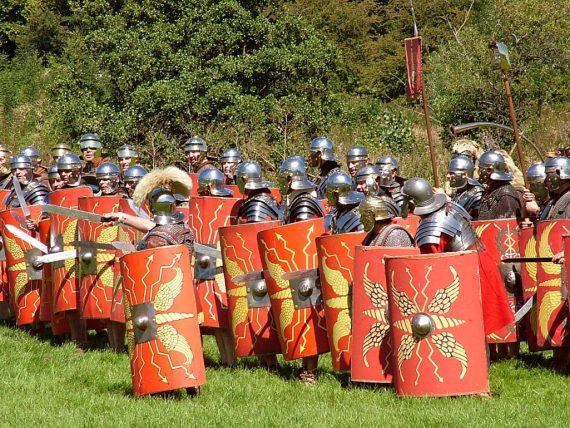


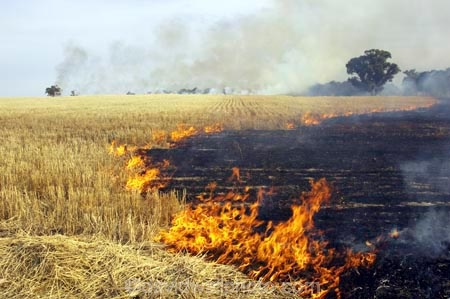 Isaiah uses terms of conception and childbirth to speak of the works that these sinners produce. It is not their lives that are chaff, stubble, and thorns, but what they produce with their lives.
Isaiah uses terms of conception and childbirth to speak of the works that these sinners produce. It is not their lives that are chaff, stubble, and thorns, but what they produce with their lives.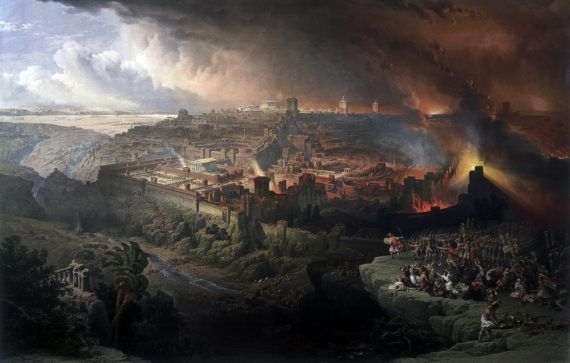
 We see evidence of this in the fact that Isaiah calls them “hypocrites.” A hypocrite is someone who acts in ways that are contrary to their stated identity. As such, anybody can be a hypocrite. Jesus often called some of His followers hypocrites (Matt 15:7; Luke 13:15), and Paul once referred to Peter and Barnabas as hypocrites (Gal 2:11-13).
We see evidence of this in the fact that Isaiah calls them “hypocrites.” A hypocrite is someone who acts in ways that are contrary to their stated identity. As such, anybody can be a hypocrite. Jesus often called some of His followers hypocrites (Matt 15:7; Luke 13:15), and Paul once referred to Peter and Barnabas as hypocrites (Gal 2:11-13). When we sin, we hurt others and we hurt ourselves. And since God loves all of us, He does not want to see us get hurt, which is why He warns us about sin. Yet we often sin anyway, and so destruction comes.
When we sin, we hurt others and we hurt ourselves. And since God loves all of us, He does not want to see us get hurt, which is why He warns us about sin. Yet we often sin anyway, and so destruction comes.
 When lime is burned in a fire or thorns are put to flame, nothing is left but a fine, white powder which blows away with the first puff of wind.
When lime is burned in a fire or thorns are put to flame, nothing is left but a fine, white powder which blows away with the first puff of wind.

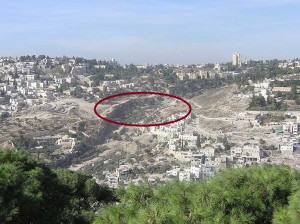 The word gehenna is a Greek transliteration from the Hebrew “Valley of Hinnom” (or Ge-Hinnom) which was a deep gorge to the southwest of Jerusalem. It was also called the Valley of Tophet.
The word gehenna is a Greek transliteration from the Hebrew “Valley of Hinnom” (or Ge-Hinnom) which was a deep gorge to the southwest of Jerusalem. It was also called the Valley of Tophet. As you haul your cart of trash down the hill into the valley, you first become aware of the smoke that rises continually from the dump. It is acrid and oily from the burning trash and causes your eyes to smart.
As you haul your cart of trash down the hill into the valley, you first become aware of the smoke that rises continually from the dump. It is acrid and oily from the burning trash and causes your eyes to smart.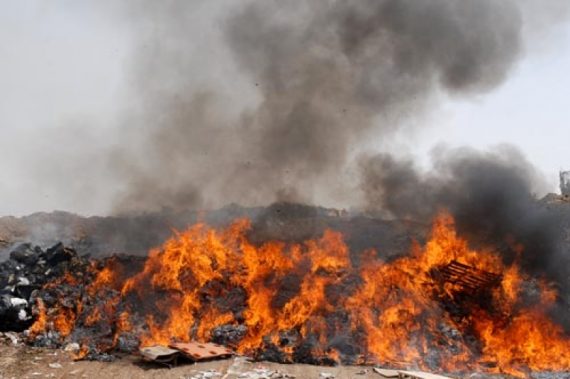
 It should be left as it is, thereby alerting the reader to the fact that the text is referring to the valley called Gehenna outside the gates of Jerusalem. Translating it as “the Valley of Hinnom” would also be fine.
It should be left as it is, thereby alerting the reader to the fact that the text is referring to the valley called Gehenna outside the gates of Jerusalem. Translating it as “the Valley of Hinnom” would also be fine. Jesus uses the history and imagery of this place to warn His disciples about what can befall them in this life if they do not follow His teaching and take steps (sometimes drastic) to protect themselves and their loved ones from the devastation of sin.
Jesus uses the history and imagery of this place to warn His disciples about what can befall them in this life if they do not follow His teaching and take steps (sometimes drastic) to protect themselves and their loved ones from the devastation of sin.